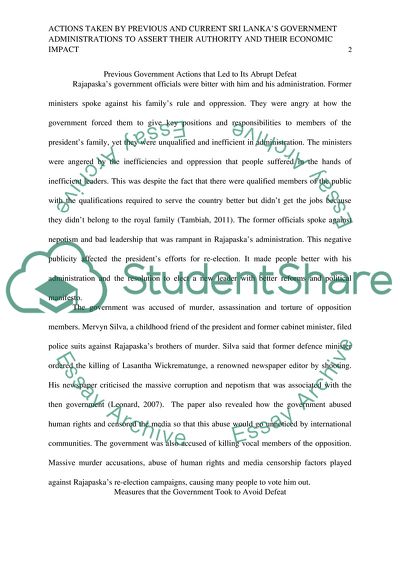Cite this document
(What could have the previous administration have done to ensure the Research Paper, n.d.)
What could have the previous administration have done to ensure the Research Paper. https://studentshare.org/macro-microeconomics/1867690-what-could-have-the-previous-administration-have-done-to-ensure-the-safety-of-its-power-and-what-would-the-county-sri-lankawould-look-like-in-an-economic-standpoint-if-such-a-thing-happened-game-theory
What could have the previous administration have done to ensure the Research Paper. https://studentshare.org/macro-microeconomics/1867690-what-could-have-the-previous-administration-have-done-to-ensure-the-safety-of-its-power-and-what-would-the-county-sri-lankawould-look-like-in-an-economic-standpoint-if-such-a-thing-happened-game-theory
(What Could Have the Previous Administration Have Done to Ensure the Research Paper)
What Could Have the Previous Administration Have Done to Ensure the Research Paper. https://studentshare.org/macro-microeconomics/1867690-what-could-have-the-previous-administration-have-done-to-ensure-the-safety-of-its-power-and-what-would-the-county-sri-lankawould-look-like-in-an-economic-standpoint-if-such-a-thing-happened-game-theory.
What Could Have the Previous Administration Have Done to Ensure the Research Paper. https://studentshare.org/macro-microeconomics/1867690-what-could-have-the-previous-administration-have-done-to-ensure-the-safety-of-its-power-and-what-would-the-county-sri-lankawould-look-like-in-an-economic-standpoint-if-such-a-thing-happened-game-theory.
“What Could Have the Previous Administration Have Done to Ensure the Research Paper”. https://studentshare.org/macro-microeconomics/1867690-what-could-have-the-previous-administration-have-done-to-ensure-the-safety-of-its-power-and-what-would-the-county-sri-lankawould-look-like-in-an-economic-standpoint-if-such-a-thing-happened-game-theory.


